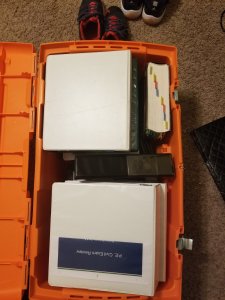- 971
- 299
- Joined
- Aug 1, 2012
my apologies when I said "general basics" I meant the basic elementary programs that I should know , thts my goal for now .. to learn and get familiar with programs and fundamentals I'll need to use in the near future .I'm not sure what you're asking me.
General basics of what? If one of your courses require you to use one of the more project-specific programs, they will most likely touch base on how to use it.
CAD you should know by now. You can watch tutorials on any other program you feel you should know?
You're confusing me with your mentionings of different disciplines. CS, I'm assuming Java is a must as I had to take a required course on it. Other than that, you would have to ask CS majors or EE's. Again, not too clear on what your goal is.



